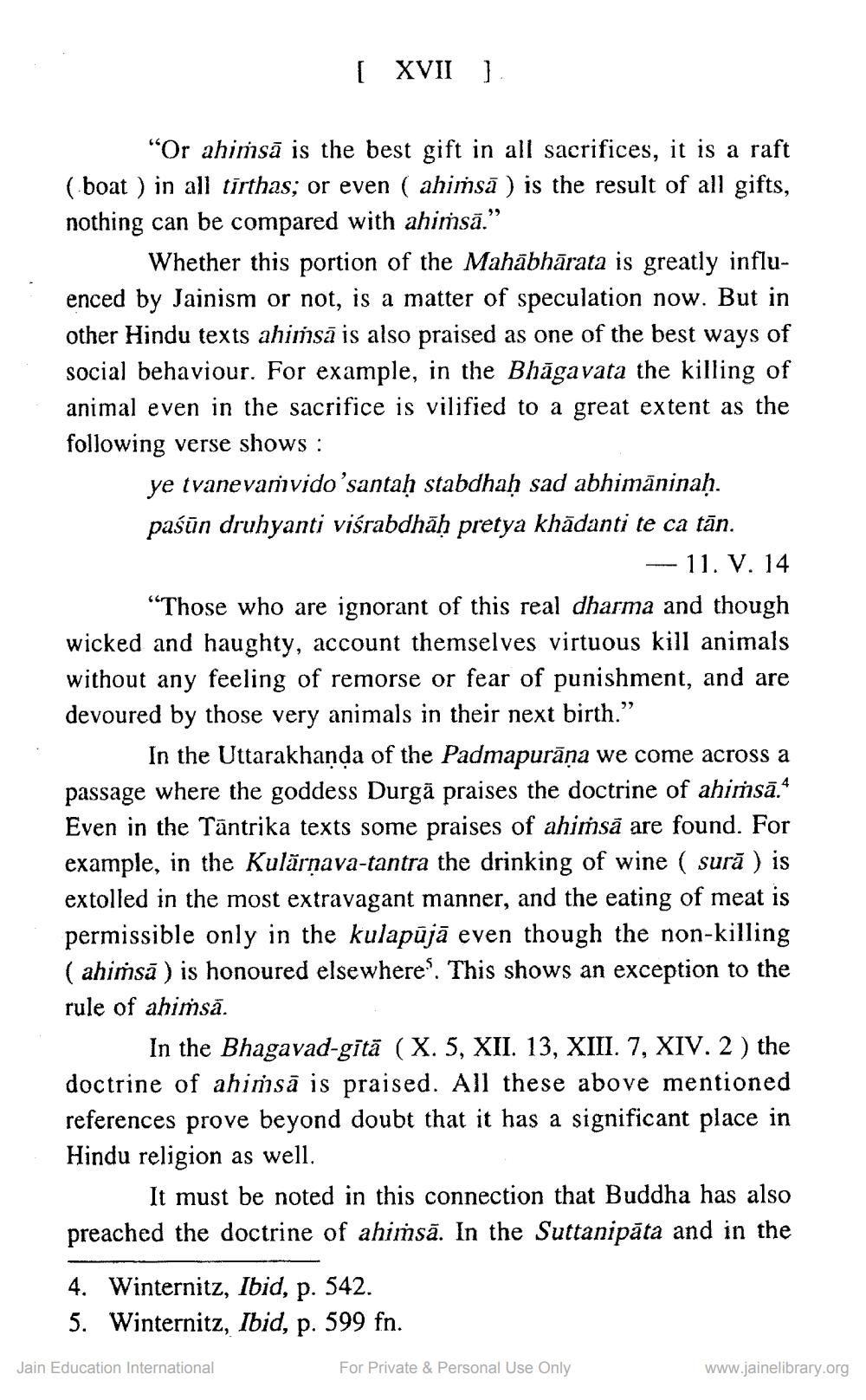________________
[ XVII ]
“Or ahiṁsā is the best gift in all sacrifices, it is a raft (boat ) in all tīrthas; or even ( ahiṁsā ) is the result of all gifts, nothing can be compared with ahimsā.”
Whether this portion of the Mahābhārata is greatly influenced by Jainism or not, is a matter of speculation now. But in other Hindu texts ahiṁsā is also praised as one of the best ways of social behaviour. For example, in the Bhāgavata the killing of animal even in the sacrifice is vilified to a great extent as the following verse shows :
ye tvanevarivido'santaḥ stabdhaḥ sad abhimāninaḥ. paśūn druhyanti viśrabdhāḥ pretya khādanti te ca tān.
-- 11. V. 14 “Those who are ignorant of this real dharma and though wicked and haughty, account themselves virtuous kill animals without any feeling of remorse or fear of punishment, and are devoured by those very animals in their next birth.”
In the Uttarakhanda of the Padmapurāņa we come across a passage where the goddess Durgā praises the doctrine of ahimsā." Even in the Tāntrika texts some praises of ahiṁsā are found. For example, in the Kulärnava-tantra the drinking of wine ( sură ) is extolled in the most extravagant manner, and the eating of meat is permissible only in the kulapūjā even though the non-killing ( ahimsā) is honoured elsewhere. This shows an exception to the rule of ahiṁsā.
In the Bhagavad-gitā (X. 5, XII. 13, XIII. 7, XIV. 2 ) the doctrine of ahińsā is praised. All these above mentioned references prove beyond doubt that it has a significant place in Hindu religion as well.
It must be noted in this connection that Buddha has also preached the doctrine of ahiṁsā. In the Suttanipāta and in the
4. Winternitz, Ibid, p. 542. 5. Winternitz, Ibid, p. 599 fn.
Jain Education International
For Private & Personal Use Only
www.jainelibrary.org




